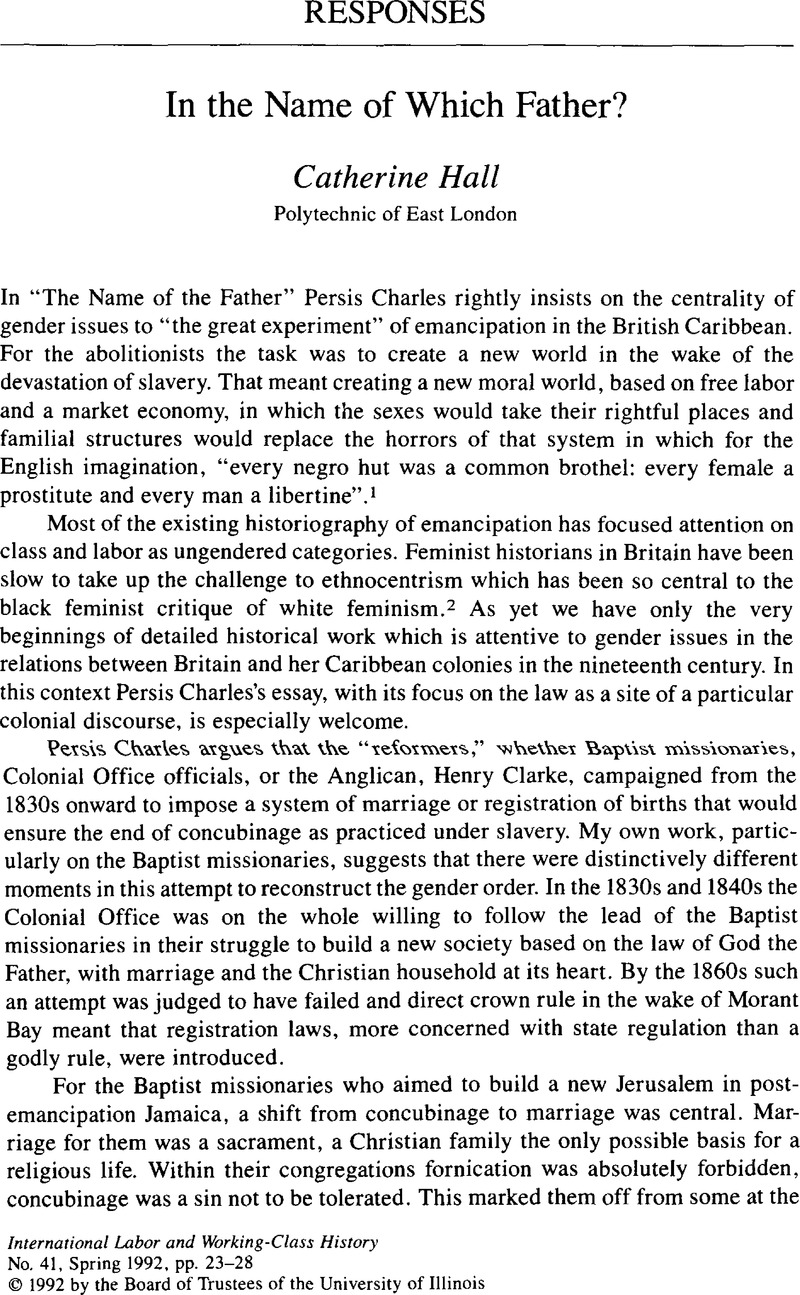Article contents
In the Name of Which Father?
Published online by Cambridge University Press: 16 December 2008
Abstract

- Type
- Responses
- Information
- Copyright
- Copyright © International Labor and Working-Class History, Inc. 1992
References
Notes
1. Phillippo, James Mursell, Jamaica: Its Past and Present State (London, 1843), 152Google Scholar.
2. Hall, Catherine, White, Male and Middle Class: Explorations in Feminism and History (Cambridge, 1992)Google Scholar. See the first essay, “Feminism and Feminist History,” for a discussion of the specificities of developments in British feminist history and the response to the black critique.
3. Mott, Lucretia, Lucretia Mott's Diary of her visit to Great Britain to attend the world's Anti-Slavery Convention of 1840, ed. Tolles, F.B. (London, 1952), 54Google Scholar. For the debate between Mill and Carlyle, see Hall, Catherine, “The Economy of Intellectual Prestige: Thomas Carlyle, John Stuart Mill and the Case of Governor Eyre,” Cultural Critique 12 (Spring 1989)Google Scholar. A revised version of this article appears in Hall, White, Male and Middle Class.
4. Parliamentary Papers, Select Committee of the House of Lords on the State of the West India Colonies, vol. 11, 246, 110, 183, 274, 414–15, 481, 516, 643, 694; vol. 12, 101Google Scholar.
5. Prince, Mary, The History of Mary Prince, a West Indian slave related by Herself, ed. Ferguson, Moira (London, 1987)Google Scholar; Missionary Herald, January 1834.
6. The Baptist Magazine, July 1834.
7. Missionary Herald, September 1834.
8. Hall, Catherine,“Missionary Stories: Gender and Ethnicity in England in the 1830s and 1840s,” in Cultural Studies, ed. Grossberg, Lawrence, Nelson, Cary, and Treichler, Paula (New York, 1992)Google Scholar.
9. Missionary Herald, December 1836.
10. Gurney, Joseph John, A Winter in the West Indies described in familiar letters to Henry Clay of Kentucky (London, 1840), 115Google Scholar.
11. Phillippo, Jamaica, 231.
12. Missionary Herald, January 1861.
- 1
- Cited by


